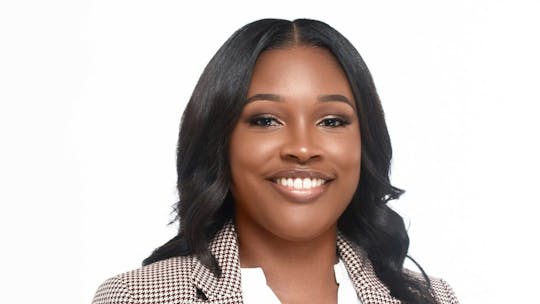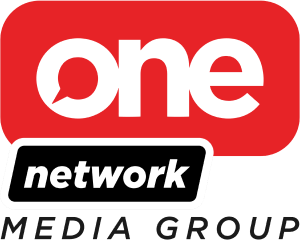ATLANTA — By unofficial count, there are no general managers standing 5-foot-2 or shorter in professional basketball. So, in that sense, the person currently running the Atlanta Hawks’ NBA G League team is a first.
And in a much more historical scope, there were no women running a professional basketball team when the College Park Skyhawks’ job came open, so in that sense, Tori Miller is the first.
It all makes for quite the spectacle when the person calling the shots for the Skyhawks must crane her neck to see eye-to-eye with the players. It does seem like a novelty, at least for now, but the process has begun where all of this, someday, will seem rather normal.
That usually happens when barriers are broken, and the pioneer doing the sledgehammering is the one who deals with the occasional double-take from strangers, and the “oh I didn’t know you were” reactions and expressions from unaware colleagues. Actually, though, it’s been all good and smooth sailing with Miller, mainly because — and this is key — her work ethic and performance here in the early going of her career tends to overshadow the fact that this GM is … different than the others.
But make no mistake: Miller is indeed the first and it’s very important to her that, for the sake of the sport and the future, others take notice of that as well.
“It’s bigger than me,” she says.
Her rise in a male-dominated position is a victory for all women, and it was made possible by one in particular. Miller was raised by a single parent in Decatur, a working-class section of Atlanta that’s just a few miles from her Skyhawks office. LaTanya Miller labored tirelessly and without complaint to nurture Tori and her sisters Nakhia and Elandis — again, lots of women here in this tale — and in the process served as the example for Miller to follow and use for her own rather improbable journey.
She started in athletics by playing softball, and when a childhood friend suggested basketball, she gravitated to that.
“I was so bad, I couldn’t get off the bench,” she recalled, “but I’m too competitive to be sitting on the bench. Every day I just started practicing. When I’m not good at something, it drives me crazy. The next summer I started on the AAU team. Made my mother get a basketball goal. Then I played on the high school team. Basketball came about because I wasn’t good initially.”
Miller didn’t play collegiately; instead, she saw her calling as a player agent, and prepared for that at the University of Miami. The task of drawing up player contracts, negotiating terms and engaging in player relations are all transferable skills to the front office. She eventually shifted her attention to the personnel side, which led to a connection with Irv Roland, a longtime NBA player development coach. She had a two-year internship in the front office with the Phoenix Suns, but once that ended, she had to strike out on her own.
And that’s when the journey became tricky and challenging and tested her resolve.
“I was a female, trying to get in,” she said. “I started the process over again after Phoenix. I did my own scouting. I spent time in Atlanta going to college games on my own. I had the sports information directors sit me in the section with the rest of the scouts and NBA general managers so I could network. And so, strategically, I’d run into NBA personnel people.”
She had the fortitude to start her own scouting service, without pay, focusing primarily on the G League because, she felt then, the league was underserved.
“I saw it as a way for me to create my path,” she said. “I sent monthly reports to all 30 teams, the positional rankings of all the guys, and I recommended guys for 10-day contracts.”
Not only was it genius, but it also set her apart from her male counterparts, and demonstrated her acumen and drive for the game. People in the league began taking notice of her work and sent critiques and support.
Then came the a-ha moment: While scouting a Georgia vs. South Carolina game, she noticed Sam Presti, the respected GM of the Oklahoma City Thunder. Not wanting to be a pest,
Miller was unsure how to approach, or if it was unwise to do so, period. She spent part of the game hedging and hesitant.
But her aggressive side kicked in; it was the same urgent mentality that lifted her off the bench in high school and into the lineup.
“This is my chance,” she told herself.
Rather than tap Presti on the shoulder, she emailed him, told him she was in the building and hoped for a few minutes of his time. From across the arena, after she pressed the send button, she saw him check his phone messages. He responded that, if the game was interesting, he’d stick around. Miller prayed for a great game, and the basketball Gods answered affirmatively.
Afterward, Presti suggested she speak with Malik Rose, the former San Antonio Spurs forward who was about to be assigned to run the Hawks’ G League team. Long story short, Rose hired her as his assistant, giving her the launching pad that led to her current role.
That’s when the realization finally kicked in for Miller.
“There are days when I ask myself, ‘What am I doing, and how did I get here?’ I was working at a used car dealership making $200 a week to support myself. As I kept going and kept hoping for a break, I told myself that it’s going to pay off. And I knew what was at stake, trying to become the first woman in this position. That’s really what kept me going. This was for future generations.”
Rose eventually left to help run operations for the entire G League and Miller finally reached her goal. She has since been followed by Amber Nichols, the GM of the Capital City Go-Go, the Washington Wizards’ G League affiliate.
The rise of women throughout the NBA has accelerated over the last several years. Women are represented in nearly all areas of the league, in physical therapy and the medical staff, athletic performance, the coaching staff, local TV broadcasts and in basketball operations.
This was a vision first put in place by the late David Stern, the former commissioner who created the WNBA, and amplified by his successor, Adam Silver, who cites the value of having diversity of all kinds in the league. NBA teams have followed up by hiring women for a variety of jobs and giving them the experience that, someday, will lead to positions at the top of the food chain.
“Once I was named GM, I was asked how it felt,” said Miller. “Well, it felt good for sure, but even better to know I won’t be the last.”
The rise of Miller is really about a journey made possible by another woman and how female empowerment can turn into something that’s lasting and historic.
“It’s because of my mom,” she said. “I was raised by a stable woman. She always instilled in us to go above and beyond. We saw what she did for us. She put three girls through school. We all went to college. And I didn’t come from a wealthy household. I saw her go to work, put food on the table, bought us clothes, never allowed us to see her struggle. She inspired me every day.”
Miller has typical GM tasks: Working with the Hawks and players sent down to the Skyhawks for seasoning, providing a platform for growth for other players who need experience, and charting the performances of all players in order to discover the diamond in the rough. There are also contracts, scouting and dealing with front office personnel and coaches that consume her time.
And, to answer a curiosity: Miller has no problem migrating through a men’s game or dealing with them.
“I share similarities with the players,” she said. “We came from the same backgrounds social-economically. I relate easier to them than people might assume. I’m female and they’re male but we’re connected in ways that’s deeper than basketball. I’m able to establish a good rapport. I can speak the same language. My husband was a former player and had to go overseas and struggle. I’ve seen the ups and downs. I understand them and relate to them.”
Obviously, there’s an end game here: Just like everyone who plays and coaches in the G League, Miller is working toward getting the call-up.
But, first things first.
“I just need to be good where I’m at and let everything take care of itself,” she said. “That’s how I’ve been able to climb in my career. Just like back when I was in the sports agency and with the Suns. If I didn’t do a good job with those internships with the agency and the Suns, they wouldn’t have brought me back.
“I’m just going to do my job here, and maybe that leads somewhere, but it’s about doing this job well. The goal is to do well in this position, then see where it takes me.”
Actually, the first goal, and maybe the most important one, has been accomplished.
“To see the excitement from other women who aspire to be in this position and from young girls reaching out to me, it’s been very inspiring,” she said. “I was about to give up, but this is the reason I kept going. I really can’t put it into words.”
* * *
Shaun Powell has covered the NBA for more than 25 years. You can e-mail him here, find his archive here and follow him on Twitter.
The views on this page do not necessarily reflect the views of the NBA, its clubs or Turner Broadcasting.




